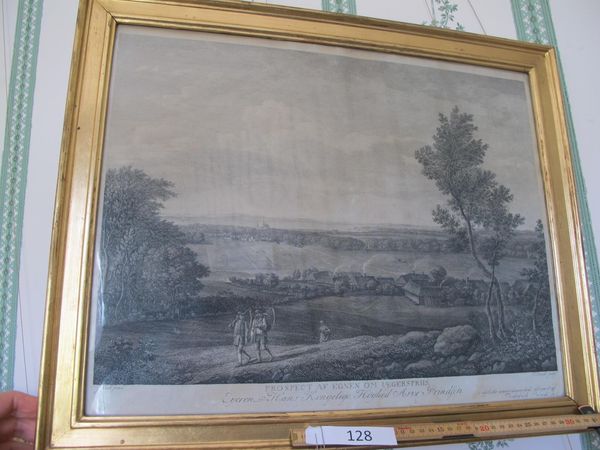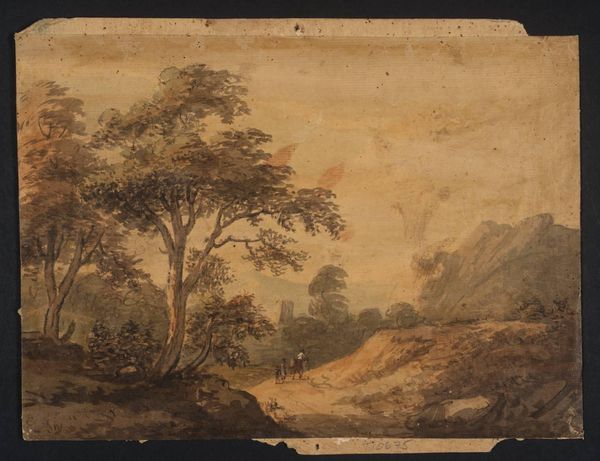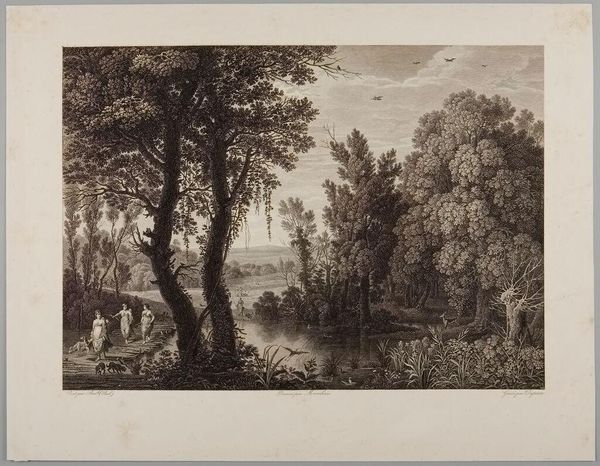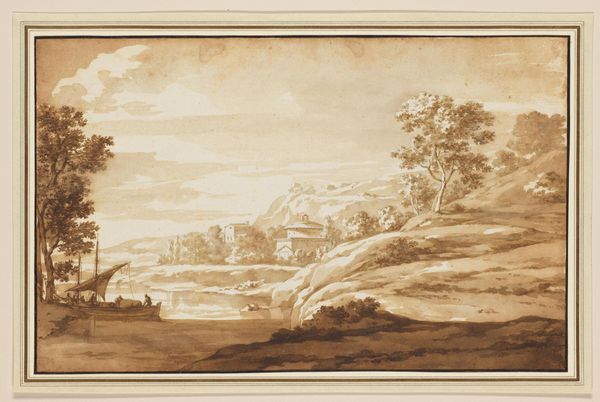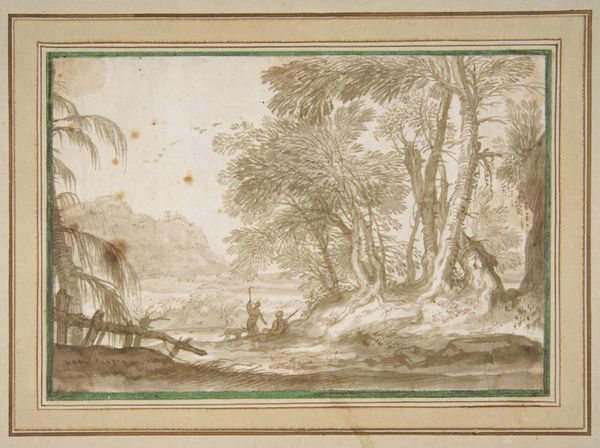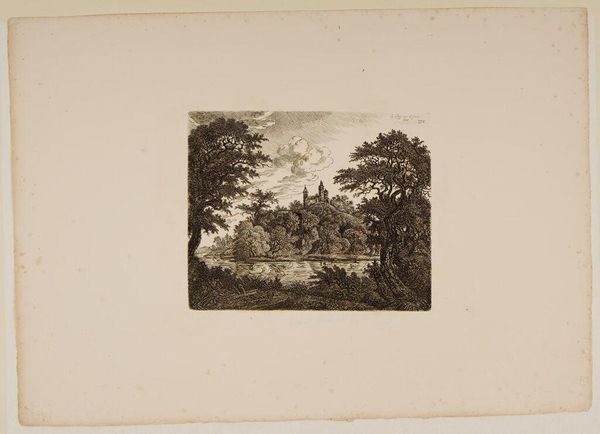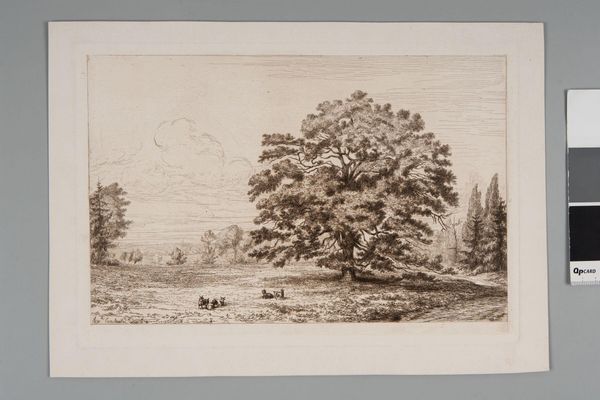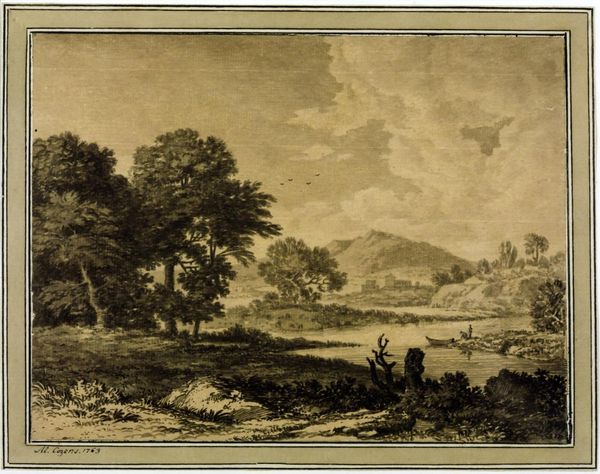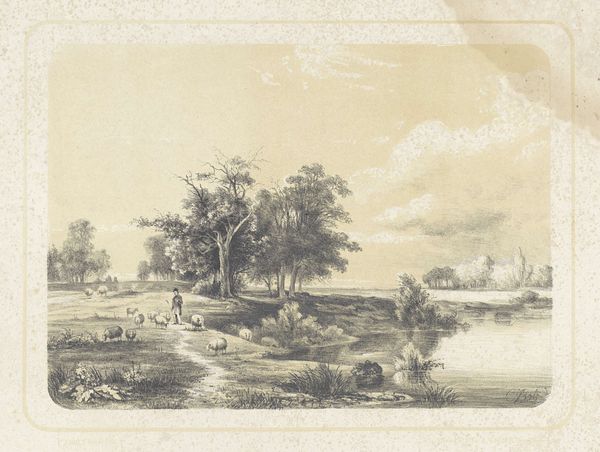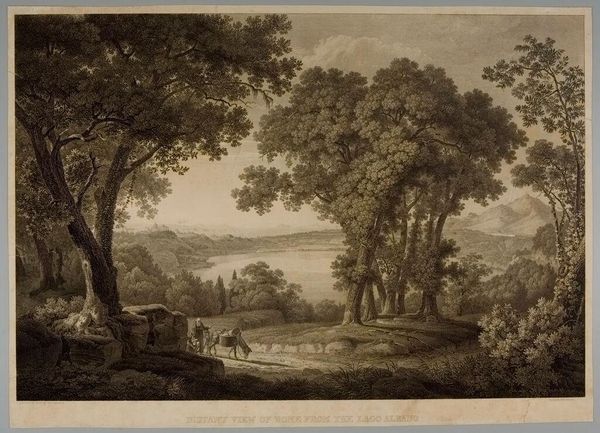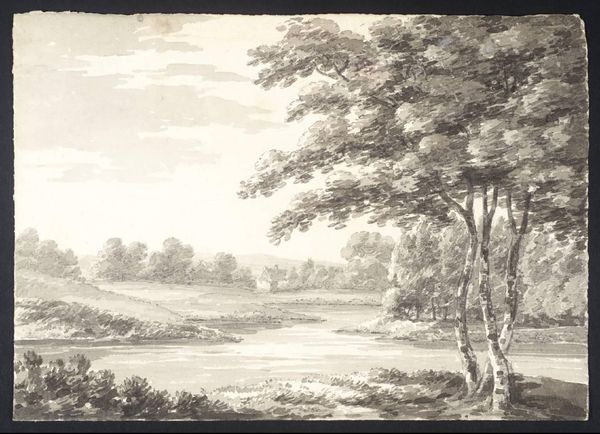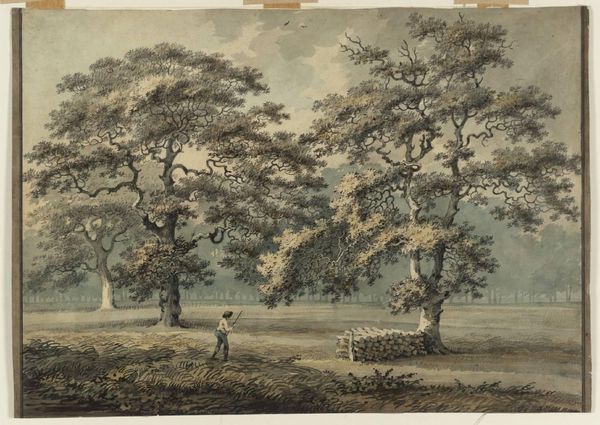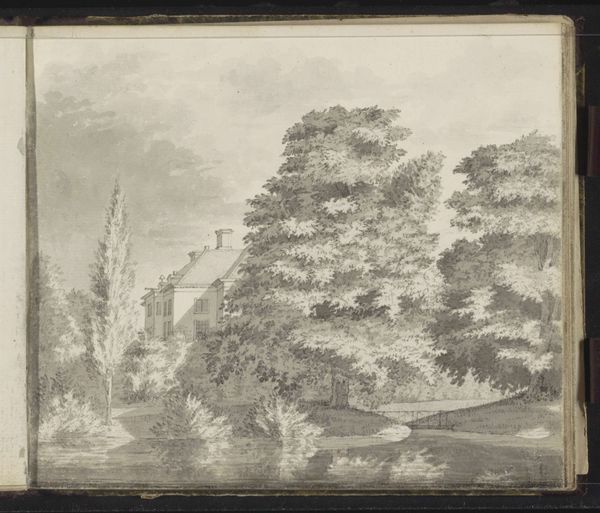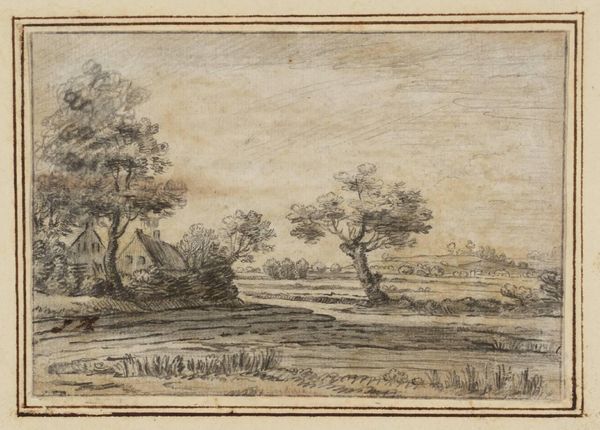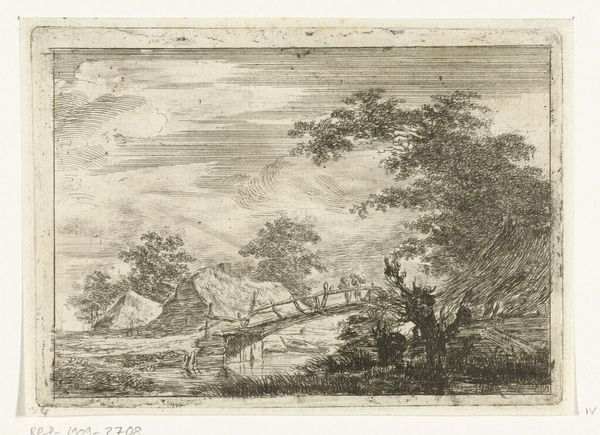
print, engraving
#
neoclacissism
# print
#
landscape
#
15_18th-century
#
engraving
Dimensions: 480 mm (height) x 600 mm (width) (brutto)
Flodlandskab was created by Frederik Ludvig Bradt in the late 18th or early 19th century, using etching and engraving. These printmaking techniques were well-established by that time, but still required considerable skill and labor. The image is made through a combination of acid-etched lines and hand-engraved details on a metal plate, which is then inked and printed onto paper. Look closely, and you can see the fine network of lines that create the landscape. The depth of tone achieved by the artist speaks to his mastery of these processes. Such prints were relatively affordable at the time, and were widely collected by the rising middle class. They allowed people to have access to imagery and artistic skill in their own homes. Consider the labor involved, both physical and intellectual, in the production of this image. It's a reminder that even seemingly simple artworks are the result of skilled handwork and careful attention to the properties of materials. In this way, even a landscape like this prompts us to consider the social and economic context of its creation.
Comments
No comments
Be the first to comment and join the conversation on the ultimate creative platform.
